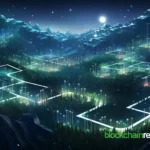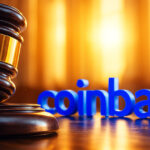The blockchain landscape is evolving rapidly, moving beyond the realm of cryptocurrency to embrace innovative technologies that are fundamentally altering concepts of ownership and trust in digital assets. One of the most transformative developments within this space is the advent of Non-Fungible Token (NFT) smart contracts. Initially designed to verify ownership of unique digital art, NFT smart contracts are now branching into diverse applications across various industries, marking the onset of a tokenized economy.
Business leaders and creators are increasingly curious about how these digital agreements can redefine ownership in both the digital sphere and the tangible world. At the core of this transformation is blockchain-powered smart contract development, which automates trust and ensures transparent transactions.
NFTs, or Non-Fungible Tokens, represent uniquely identifiable digital assets on a blockchain. Unlike cryptocurrencies such as Bitcoin or Ethereum, each NFT carries distinct metadata, making it singular. The true innovation arises from smart contracts, which encode the rules governing ownership and the process of transfer.
Initially, NFTs garnered attention as digital collectibles within the crypto community. Utilizing Ethereum’s ERC-721 standard, developers ushered in the first wave of NFT smart contract development. While these initial models may appear rudimentary today, they laid the foundation for the multifaceted use of NFTs in contemporary industries.
Digital artists were among the first to harness the potential of NFT smart contracts, enabling them to mint their artwork as NFTs and sell directly to collectors without the need for intermediaries. With each transaction, smart contracts automatically managed sales, royalties, and ownership transfers on the blockchain, ensuring authenticity and preventing unauthorized duplication of the artworks. This revolutionary development empowered artists and instilled trust in buyers, propelling NFT smart contract development into mainstream recognition.
However, the influence of NFT smart contracts extends far beyond art and gaming. Various sectors are now exploring innovative applications of NFTs:
- Real Estate: Tokenizing properties allows fractional ownership and simplifies deed transfers.
- Music and Entertainment: Artists can sell rights, royalties, and even exclusive event access in NFT format.
- Supply Chain: Companies are leveraging NFT smart contracts to trace authenticity and monitor product journeys.
- Healthcare: Medical records and patient data can be securely tokenized, enhancing access and safety.
This expansion is driven by smart contract developers who create tailored solutions that meet real-world needs. Businesses have begun viewing NFTs not merely as collectibles, but as tools for decentralized finance and business agreements.
The newest phase of NFT smart contract development transcends basic transactions, with developers now crafting dynamic, interactive contracts that adapt based on specific conditions. Innovations include:
- Programmable Royalties: Artists earn a percentage each time their NFT is resold.
- Fractionalization: High-value assets can be divided into smaller, more accessible shares.
- Interoperability: NFTs can traverse multiple blockchains, thanks to advanced smart contract capabilities.
- Security Enhancements: Developers focus on thwarting potential exploits with rigorous auditing tools.
The future potential of NFTs is immense and extends well beyond the current applications in art and gaming. Future scenarios might include:
- The rental of homes through NFT-backed agreements.
- Stock markets using tokenized shares for seamless trading.
- Government documents, such as IDs or licenses, existing as NFTs for enhanced verification processes.
These visions are not far-fetched; they reflect the groundwork being laid through blockchain smart contract development. As industries prepare for decentralized ecosystems where trust is embedded in code, smart contract developers will play a pivotal role in turning imaginative concepts into reality.
Integral to the success of any NFT initiative are marketplace development companies, which ensure reliability and innovation in NFT projects. These firms design and audit NFT smart contracts to facilitate smooth transactions and secure ownership transfers. For businesses aiming to venture into the NFT space, partnering with the right smart contract development service is crucial. Web3 smart contract developers can customize marketplaces tailored for art, gaming, real estate, or finance—transforming visions into operational business models.
Ultimately, as NFT smart contracts continue to evolve—from empowering individual artists to revolutionizing entire industries—their impact on ownership, trade, and trust in both digital and physical assets will be profound. The choice of the right development partner can make all the difference in navigating this transformation securely and successfully. The ongoing evolution of NFT smart contracts underscores a vital principle: that innovation flourishes when technology and trust meet, a synergy that is essential for future advancements in the digital era.







